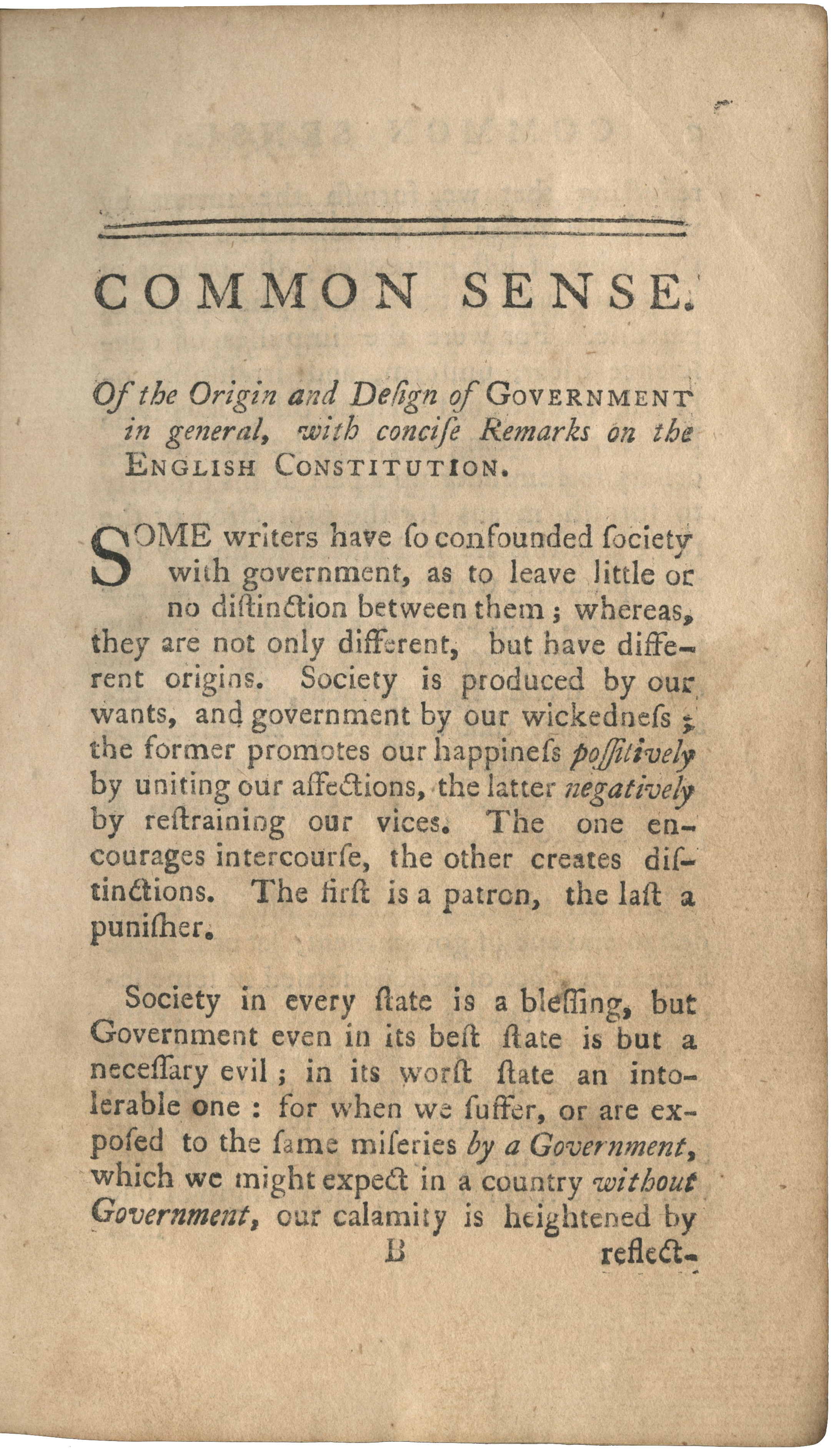 Image 1 of
Image 1 of

Thomas Paine’s Common Sense, Or the Origin and Design of Government
“Government, like dress, is the badge of lost innocence… For were the impulses of conscience clear, uniform and irresistibly obeyed, man would need no other lawgiver”
This little pamphlet helped make the Declaration of Independence happen. Only a third of American colonists favored separation from Britain before Common Sense was first published in January 1776; it swayed as much as another third. Paine’s compelling arguments about the purpose and nature of government still hold up.
“Society is produced by our wants, and government by our wickedness; the former promotes our happiness Positively by uniting our affections, the latter Negatively by restraining our vices. The one encourages intercourse, the other creates distinctions. The first is a patron, the last a punisher… Government, like dress, is the badge of lost innocence; … For were the impulses of conscience clear, uniform and irresistibly obeyed, man would need no other lawgiver; but that not being the case, he finds it necessary to surrender up a part of his property to furnish means for the protection of the rest… Society in every state is a blessing, but government even in its best state is but a necessary evil; in its worst state an intolerable one…”
Paine argued that the idea of monarchy was antiquated, and that mankind was approaching an Age of Reason. Only in America, Paine believed, could humans fully escape from the restraints of tradition and ignorance to become enlightened self-governing citizens. The first edition sold out within days.
After a dispute with his publisher Robert Bell, Paine went to another with significant additions to the text, including the phrase, “the Free and Independent States of America.” here, Bell simply republishes without permission the new additions.
This copy belonged to Robert Yates who, following Independence, helped draft New York’s first constitution. In 1787, along with Alexander Hamilton and John Lansing, Jr., he was appointed to represent New York at the Constitutional Convention. He and Lansing both opposed a strong national government and soon withdrew. Yates penned numerous Anti-Federalist essays as “Brutus.” He twice ran for Governor, losing to George Clinton in 1789, and John Jay in 1795. He was a Justice of New York’s Supreme Court, and then Chief Justice, 1790–1798.

★ THOMAS PAINE.. Common Sense; Addressed to the Inhabitants of America… Philadelphia: Printed, and Sold, by R. Bell, 1776. Mixed edition*, in a sammelband, bound with PAINE’S Large Additions to Common Sense … and JAMES CHALMERS’ Plain Truth; Addressed to the Inhabitants of America..., the principal loyalist response to Common Sense. #27742
